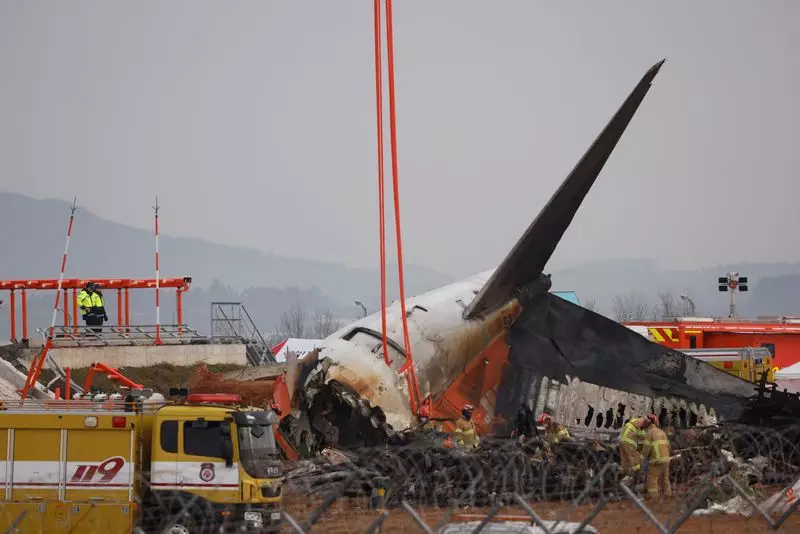On Monday, a significant downturn was observed in the stock performance of Jeju Air, a leading budget airline in South Korea. The airline’s shares plummeted to an unprecedented low following an unfortunate incident that resulted in the death of 179 passengers and crew members. As trading began, the airline’s stock faced an immediate decline, dipping as much as 15.7% at one point before eventually settling down by 8.5% to 6,920 won, marking its nadir since entering the market in 2015.
This decline not only affected Jeju Air but also its parent company, AK Holdings, which saw its shares plunge by approximately 12%, hitting levels not seen in 16 years. The total market capitalization loss for Jeju Air amounted to a staggering 95.7 billion won, equivalent to around $65.2 million. Such a significant drop underscores how intertwined stock performance and tragic events can be, particularly for budget airlines where operational credibility is paramount.
The incident at Muan International Airport, marking Jeju Air’s first fatal accident since its inception in 2005, has triggered alarm across South Korea’s aviation sector. In response to this devastating occurrence, South Korea’s acting President Choi Sang-mok mandated an immediate safety review of the airline’s operational protocols once recovery efforts were complete. This move is indicative of an urgent need to restore safety confidence among travelers and stakeholders alike.
In stark contrast to Jeju Air’s ordeal, other budget carriers like Air Busan experienced a rise in their stock prices, suggesting a potential shift in consumer preference in light of the accident. However, Jin Air and T’way Air saw their stocks decrease, showcasing the mixed sentiment across the airline sector. Meanwhile, the nation’s flagship carriers, Korean Air Lines and Asiana Airlines, also experienced minor dips, reflecting a widespread anxiety about air travel safety among passengers.
In the wake of such a tragic event, industry analysts predict a potentially lasting impact on consumer confidence. According to Yang Seung-yoon from Eugene Investment Securities, while the current situation may prompt short-term cancellations of travel plans, the long-term ramifications on overall travel demand may not be as severe. However, the necessity of keeping consumer confidence high remains critical, especially for budget airlines whose services are often indistinguishable from one another.
Travel agencies have also reported considerable ripple effects—advertisements and promotional events have come to a halt, with some operations seeing tour package cancellations double and new bookings drop by as much as 50%. Many of those who lost their lives in the crash were returning from vacations, amplifying the emotional strain on the public as the holiday season approached.
In light of this unexpected incident, Jeju Air faces an uphill battle to regain its stature within South Korea’s aviation landscape. Stakeholders and industry experts alike will be keeping a close watch on the airline’s response and measures put in place for safety improvements. The recovery journey for Jeju Air will not only demand effective operational changes but also a robust strategy to reclaim traveler trust, which is more crucial now than ever as the landscape of budget air travel evolves in response to consumer perceptions and expectations.

